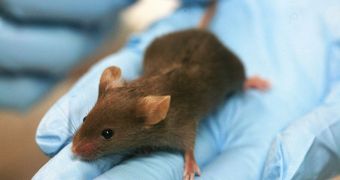A group of scientists announces that it was able to identify a genetic mechanism in the brain of elderly mice that could hold the key to allowing them to remember forgotten information. The mechanism could even theoretically be found in humans. If this is indeed the case, then it could be that we could witness the birth of new therapies aimed at seniors, which would make them remember data that old age makes them forget. The team behind the investigation says that the mechanism of age-related memory loss is inscribed in the DNA of mice, and that this could hold true for humans as well.
The research team behind the new investigation is based at the European Neuroscience Institute in Gottingen, Germany, and is lead by expert Andre Fischer. In a series of studies on unsuspecting lab mice, the researchers determined that older mice, beyond the age of 16 months, had small amounts of a special kind of genetic packing material. This substance is generally used as a means of helping special strands of DNA spring into action, which play an active role in the memory formation process. Mice were used for these tests because, like humans, they tend to forget where they were when a particular thing happened, once old age sets in.
To prove this, the team placed mice in a special chamber, where odors and special lighting, among other clues, were meant to make the room stand out. Then they applied an electric shock to the feet of the animals, and allowed them to rest for the night. When the creatures were again placed inside it the following day, young mice froze in fear at the sight of the cues, remembering the pain they felt. However, mice that were older than 16 months did not remember a thing, and started roaming around unafraid of the electric shock. Fischer's team then proceeded to study the brain of these mice, looking for chemical differences to set them apart from younger mice.
The analysis revealed that senior mice had fewer acetyl groups, which are chemical tags that play the role of loosening up the tightly-wound DNA, before memory formation can begin. As a direct result, the ability of the mice to form recollection of the painful stimuli was hindered. An additional result was that an entire suite of genes, which should have been activated by the stimuli, remained turned off, thus further hindering the process. When the researchers injected special drugs to stop acetylation directly into the mice's brains, the gene suit was turned on, proving that the mechanism is reversible, Wired reports.

 14 DAY TRIAL //
14 DAY TRIAL //